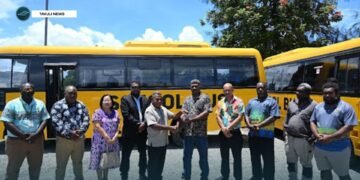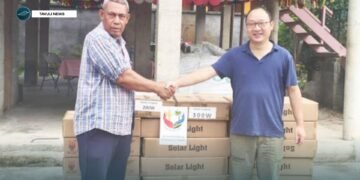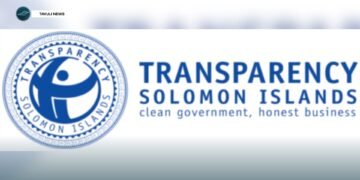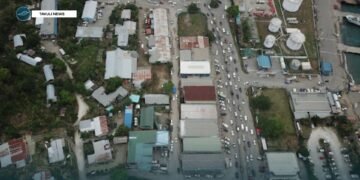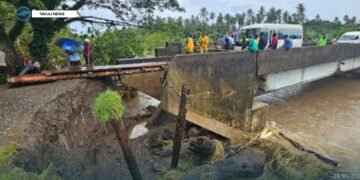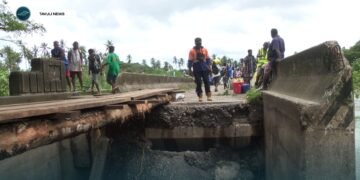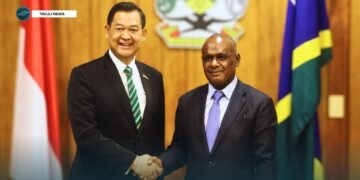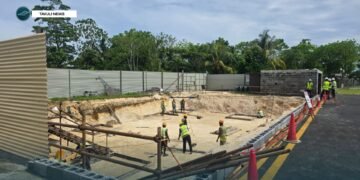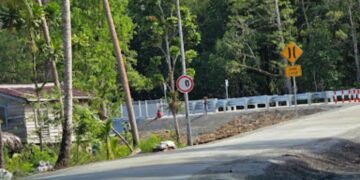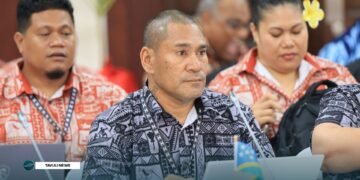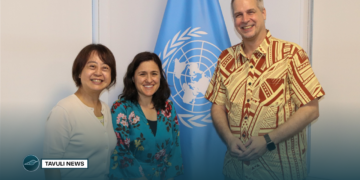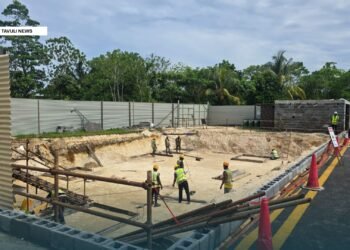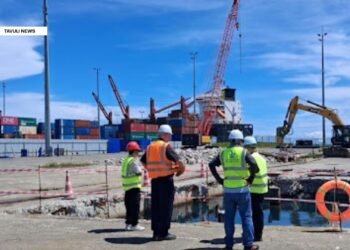Solomon Islands launches its first parametric microinsurance to support fast disaster relief and strengthen climate resilience.
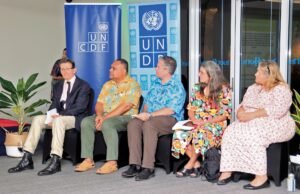
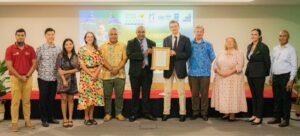
The Solomon Islands has taken a significant step towards strengthening national resilience to climate change and natural disasters with the official launch of its first-ever market based Parametric Microinsurance Product.
The launch, held in Honiara on Tuesday 13th May 2025 at the Heritage Park Hotel, also marked the one-year anniversary of Trans Pacific Assurance Limited’s (TPAL) operations in the country, the insurance company that is set to offer this product. Supported by the United Nations’ Pacific Insurance and Climate Adaptation Programme (PICAP), this innovative solution is being piloted and tested through the Central Bank of Solomon Islands’ (CBSI) regulatory sandbox.
Parametric insurance is a new form of coverage designed to provide fast, direct financial support to households affected by natural hazards such as cyclones, heavy rainfall, and droughts. Unlike traditional insurance, which requires lengthy claims processing, parametric insurance makes automatic payouts based on verified weather data and predefined thresholds, such as rainfall levels or wind speed thresholds, ensuring relief within days after an extreme weather event.
Building Climate Resilience through Partnership
Speaking at the event, Governor of the Central Bank of Solomon Islands (CBSI) Governor Dr. Luke Forau described the launch as a “historic milestone” and emphasized the Central Bank’s commitment to expanding financial inclusion and resilience across the country.
“As the Governor of the Central Bank of Solomon Islands, I am proud of the leadership role we have taken in this initiative. Our regulatory sandbox has provided a safe space to test this product—reviewing its actuarial models, consumer protection mechanisms, and distribution strategies to ensure it is sound and equitable”, said Dr. Forau.
“This product offers vulnerable communities an affordable safety net, strengthens financial resilience, reduces recovery time, and also supports our National Financial Inclusion Strategy 3’s goal to reach 300,000 adults with financial services by 2025,” Dr. Forau added.
TPAL Chairman Mr. Michael Sullivan acknowledged the role of the private sector in driving resilience and urged continued collaboration with government, the United Nations and donor partners to expand the product across the country. “We see ourselves not just as an insurance provider, but as a partner in progress for the Solomon Islands,” he said.
International Partners Commend Solomon Islands’ Leadership
Development partners and donors to PICAP – the Governments of Australia, New Zealand, and the United Kingdom, commended the Solomon Islands for joining PICAP, a joint initiative implemented by the UN Capital Development Fund (UNCDF), UN Development Programme (UNDP), and the UN University Institute for Environment and Human Security (UNU-EHS).
- His Excellency Jonathan Curr, New Zealand High Commissioner, noted the regional impact of PICAP, which has already benefitted over 45,000 households in other Pacific countries. ““As a donor of this initiative, alongside Australia and the United Kingdom, New Zealand looks forward to the transformative impact of this initiative and to deepening our partnership in the years ahead,” he stated.
- Ms. Emma Davis, Deputy High Commissioner of the UK, stressed the urgency of reaching the most vulnerable. “Parametric insurance offers a rapid, community-driven solution that strengthens resilience and supports sustainable development goals,” she said.
- Ms. Prudence Pickering, First Secretary of the Australian High Commission, highlighted Australia’s pride in supporting PICAP. “This is a practical, scalable solution empowering local communities to recover quickly after disasters,” she said.
UN Pledges Continued Support
Welcoming guests on behalf of PICAP, Ms. Shreya Rajpuriya of UNCDF highlighted that the parametric micro-insurance model being launched in the Solomon Islands builds on successful pilots across Fiji, Vanuatu, Tonga, Samoa, Papua New Guinea, and Kiribati. the product’s design – grounded in climate data and real-world testing. “This solution is tailored to respond to the needs of farmers, fishers, small businesses, and informal workers – the very backbone of our economy,” she said.
The pilot rollout will begin in Guadalcanal and Malaita through partnerships with organizations like the Solomon Islands National Provident Fund (SINPF) and M-SELEN to make the product accessible and affordable to rural and remote communities. Based on the initial feedback from the communities, this solution will be expanded to other provinces.
A New Chapter for Climate Resilience
As one of the most climate-vulnerable countries in the world, the Solomon Islands faces millions in annual economic losses due to disasters. Tuesday’s launch represents a bold step towards reducing this risk and ensuring that no family is left behind when a disaster strikes.
The Central Bank, Government, development partners, and the private sector all reaffirmed their commitment to scaling this life-changing product and building a more resilient, inclusive, and prosperous Solomon Islands.
SOURCE: CBSI PRESS



